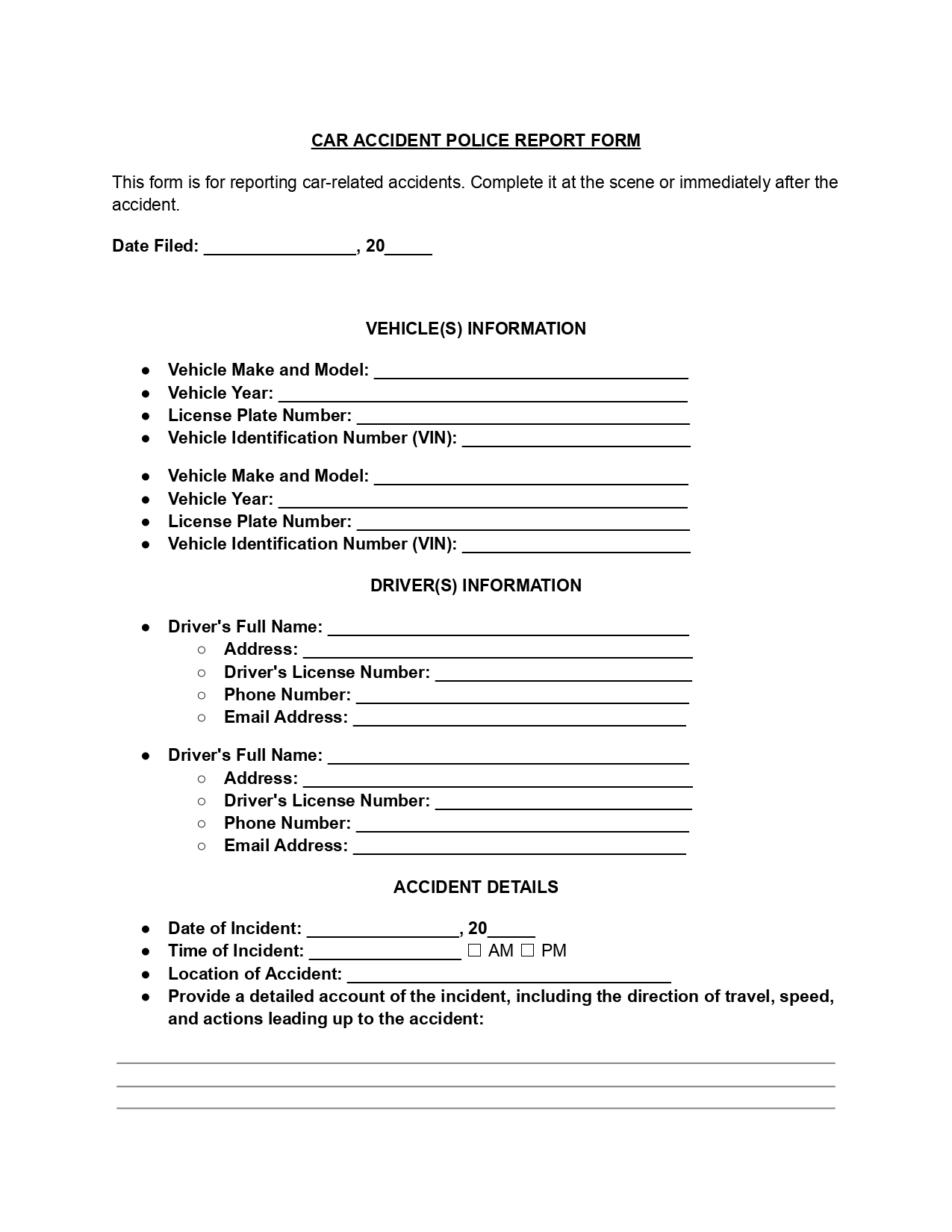A car accident police report form is a document completed by a police officer at the vehicle accident scene. This report captures the accident’s date, time, and location, the parties involved, witness statements, and any injuries or damages incurred. The report also includes the officer’s observations and indicates whether traffic laws were violated and by whom.
These forms are helpful for insurance claims, legal proceedings, and resolving disputes regarding fault and compensation between the involved parties.
When to Use a Car Accident Police Report?
A car accident police report form is necessary in various cases, mainly as a record for legal and insurance procedures. It is handy when assigning blame is difficult or if any involved party is injured. Here are specific instances when you should ensure a report is filed:
- Injuries or fatalities. If anyone is injured or killed in the accident, a police report provides an official account for medical claims and legal issues.
- Significant damage. A police report can help facilitate the insurance claims process for accidents resulting in considerable damage to vehicles or property.
- Disputes. If disputes exist about the accident details or fault, a police report gives an impartial third-party perspective.
For example, if a driver rear-ends your car at a stoplight, causing substantial damage to your vehicle and injury to your neck, a police report would document these details, supporting your insurance claim. Similarly, in a hit-and-run scenario, a car accident police report is used to investigate and possibly identify the fleeing driver.
How to Fill Out a Car Accident Police Report Form
This document becomes an official record and helps in insurance claims and potential legal proceedings. Here’s a guide to completing the car accident police report.
1. Write Basic Information
Start by entering the date the form is being filled out in the “Date Filed” section.
2. Document Vehicle(s) Information
For each vehicle involved in the accident, provide the make and model, year, license plate number, and Vehicle Identification Number (VIN).
3. Record Driver(s) Information
Include comprehensive details for each driver involved in the accident. It includes full name, address, driver’s license number, phone number, and email address. Accurate contact information is essential for all parties involved in the accident.
4. Describe the Accident
Detail the date and time of the incident, location, and a complete description of what occurred. Include travel directions, speed, and actions leading up to the accident.
5. Report Injuries and Damages
Check the appropriate box to indicate if there were any injuries. If there were, provide details about the injuries and who was injured. Also, describe the damages to each vehicle. This section is used for insurance and medical records.
6. Include Witness Information
If there were any witnesses to the accident, record their names and contact details. Witness accounts can be used to resolve disputes and insurance claims.
7. Add Police and Emergency Response Details
Write the name, badge number, and department of the officer who responded to the scene. Additionally, indicate whether any medical assistance was provided and where it was administered.
Note that an illness report must be completed within 24 hours to document any health-related incidents accurately and ensure prompt medical attention.
8. Person Filing the Report
The person completing the form should provide their full name, sign, and date the report.
9. Internal Use Only
This section is for the organization or authority receiving the form. It should be filled out internally to note who received the report and any actions taken following the incident.
